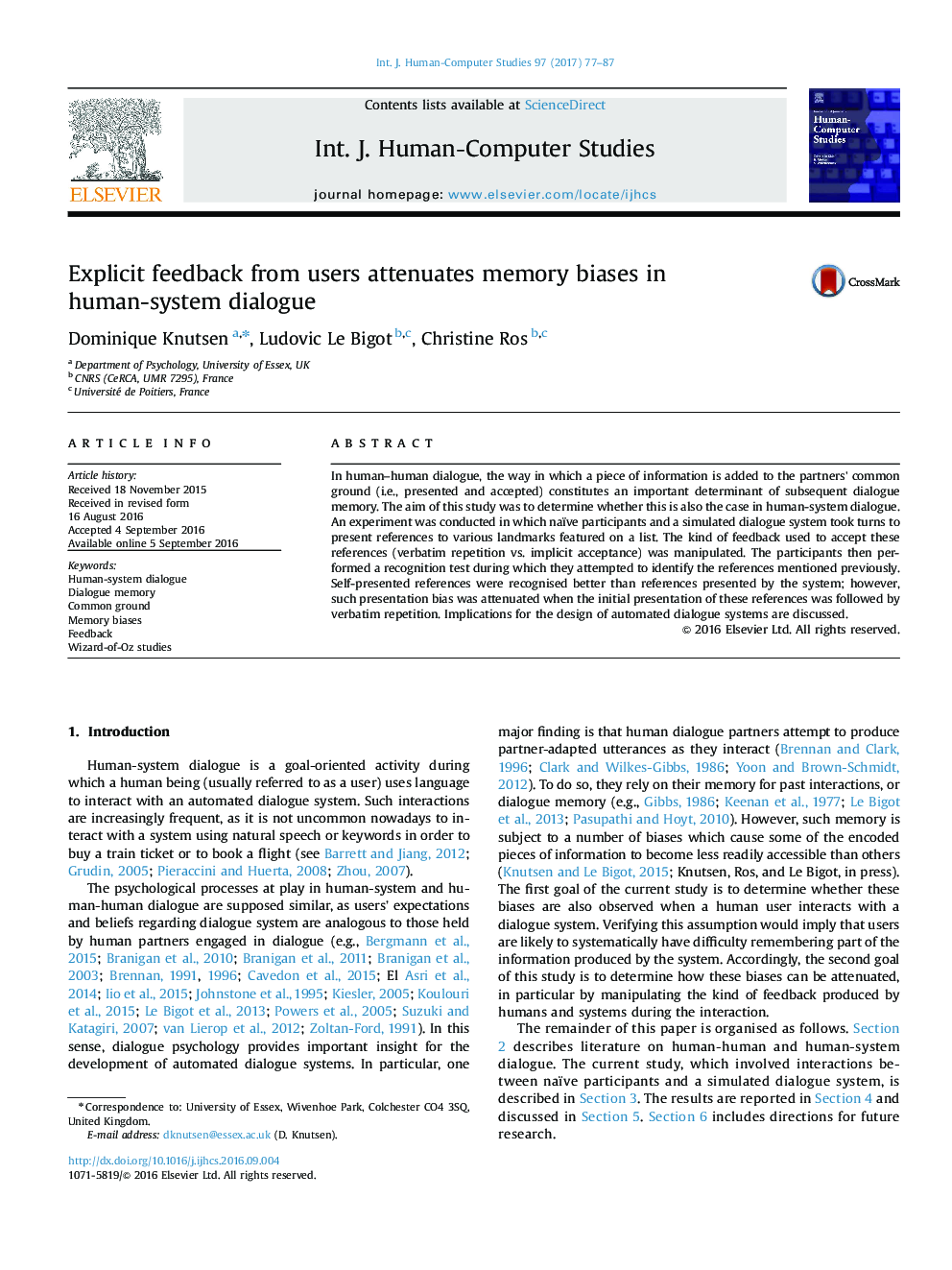| Article ID | Journal | Published Year | Pages | File Type |
|---|---|---|---|---|
| 4945870 | International Journal of Human-Computer Studies | 2017 | 11 Pages |
Abstract
In human-human dialogue, the way in which a piece of information is added to the partners' common ground (i.e., presented and accepted) constitutes an important determinant of subsequent dialogue memory. The aim of this study was to determine whether this is also the case in human-system dialogue. An experiment was conducted in which naïve participants and a simulated dialogue system took turns to present references to various landmarks featured on a list. The kind of feedback used to accept these references (verbatim repetition vs. implicit acceptance) was manipulated. The participants then performed a recognition test during which they attempted to identify the references mentioned previously. Self-presented references were recognised better than references presented by the system; however, such presentation bias was attenuated when the initial presentation of these references was followed by verbatim repetition. Implications for the design of automated dialogue systems are discussed.
Keywords
Related Topics
Physical Sciences and Engineering
Computer Science
Artificial Intelligence
Authors
Dominique Knutsen, Ludovic Le Bigot, Christine Ros,
